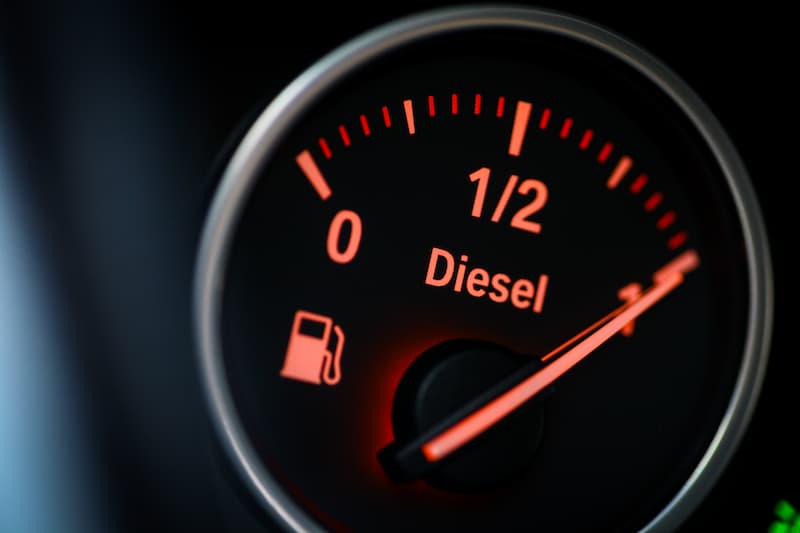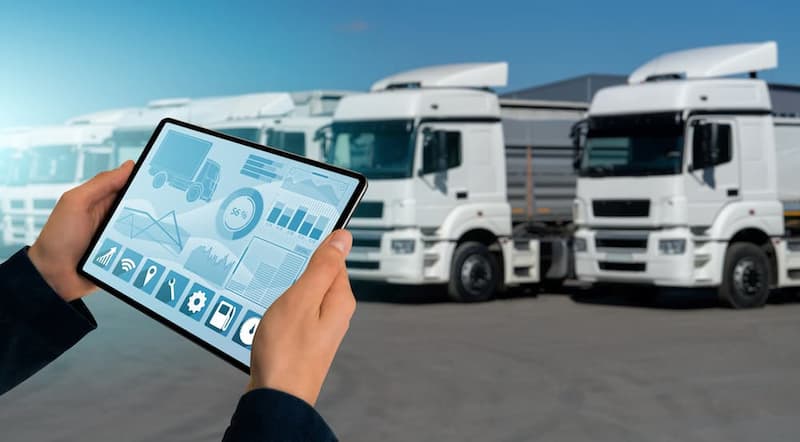Ways HGV Drivers Can Improve Their Fuel Efficiency
With fuel costs rising, every fleet manager must look for new ways their drivers can improve fuel efficiency. Fortunately, there are many ways that drivers and managers can achieve these savings.
One of the best ways fleets can improve their management is by incorporating a planning system before committing to a day of operations. Planning can take many forms, but each is essential to getting the most out of your fleet, and as your fleet’s general efficiency increases, so will its fuel efficiency.

Planning Ahead
It’s well known that the journey to your driver’s destination is the most significant expense for your fuel, and this is an unavoidable part of running a fleet. Still, a considerable amount of wasted fuel during any trip can be saved by planning a more effective route. Many fleets will revert to following set routes for work, especially repeat deliveries.
But relying on these fixed routes will deny managers the opportunity to improve their driver’s fuel efficiency by finding new, better journeys. In addition, planning a driver’s journey will allow a manager to consider specific considerations regarding a vehicle’s fuel expenditure. For example, flat terrain will use less fuel than one involving hills. Additionally, any known road works will increase the planned delivery time and cost more fuel. The shortest distance on a map may not be the most efficient route. If you’ve invested in your own onsite fuel storage tanks, you can also learn how much your drivers will need to complete the job.
GPS units can assist in this goal. Installed within the driver’s cabs and pre-programmed with the best route will ensure that none of your drivers accidentally take a longer journey or get lost, saving much of their fuel.
Preventing Breakdowns
Healthy engines are more fuel efficient than worn engines. Any vehicles that are not maintained will suffer from wear and slowly lose efficiency until they break down completely. Ensuring your fleet is serviced regularly will help ensure that they all run at their most efficient and help you avoid any unexpected breakdowns.
A GPS telematics device installed in all your vehicles will help with this. It will track the engine’s mileage and let you know how far it’s gone since its last maintenance. Fleet managers can decide how many miles a vehicle should travel before organising a maintenance check.
Green Driving
An HGV driver can enact many good practices to improve their fuel efficiency. Choices like minimising engine idling, safe driving and watching your speed may seem minor improvements, but they have an impressively positive effect on a driver’s fuel efficiency.
The average 420hp truck will burn roughly two litres of fuel per hour when an engine is idling. This covers time wasted in congested traffic as well as engines left to run when they’re parked. Therefore, we highly recommend that drivers turn off their engines when parked to avoid wasting fuel. Additionally, avoiding heavy traffic with route planning will help avoid wasting fuel and delaying delivery times.
Aggressive driving is very tempting when aiming to complete work quickly. Driving faster, attempting to overtake and cutting corners are dangerous ways to run an HGV. Even if you avoid an accident, they will use up an increased amount of fuel, making these supposed cost-cutting measures pointless. Driver refresher training is a helpful tool to help curb these negative instincts and ensure that your driving is not only fuel efficient but has a high safety rating.
Streamlining your cargo isn’t always an option, but avoiding extra weight whenever possible is also a good idea for fuel efficiency. Unburdening your vehicle of unnecessary tools or materials. Checking your vehicle before you start a job is a good way of assessing what you’ll need.
Benefits of Fuel Management Software
Fuel management systems are an effective tool for monitoring a fleet’s fuel usage. At Fueltek, we have designed and developed our exclusive fuel manager web-hosted software that can connect with a range of dispensing pump interfaces (predominantly our FT4000 range) and display transaction information on this fuel. The fuel management software can be used as a stand-alone reporting package or enhanced in conjunction with our Tankwatch software.
These systems accurately measure your current fuel inventory and any transactions made from your supply. The software collects this information and displays it visually for analysis, but it can also provide you with a broader view of your fleet operations. Our software can inform you of fleet lists related to refuelling, run your stock control and create reports, all vital data that can be assessed with various metrics
Online fuel management is the most effective when combined with an onsite fuel tank. Investing in your own fuel storage tank will enable you to gain much greater control over your fuel expenses and significantly increase the efficiency of many other aspects of your fleet operations, such as the previously mentioned route planning.
Wireless Fuel Management
Fueltek specialises in providing the most complex online fuel management software for all our clients so they can be confident that they will be able to lower their fuel expenses significantly. You can read more about our range of fuel monitoring and management solutions online, including our highly requested complete fuel management package. Discover for yourself how much fuel you could save your fleet online today.










